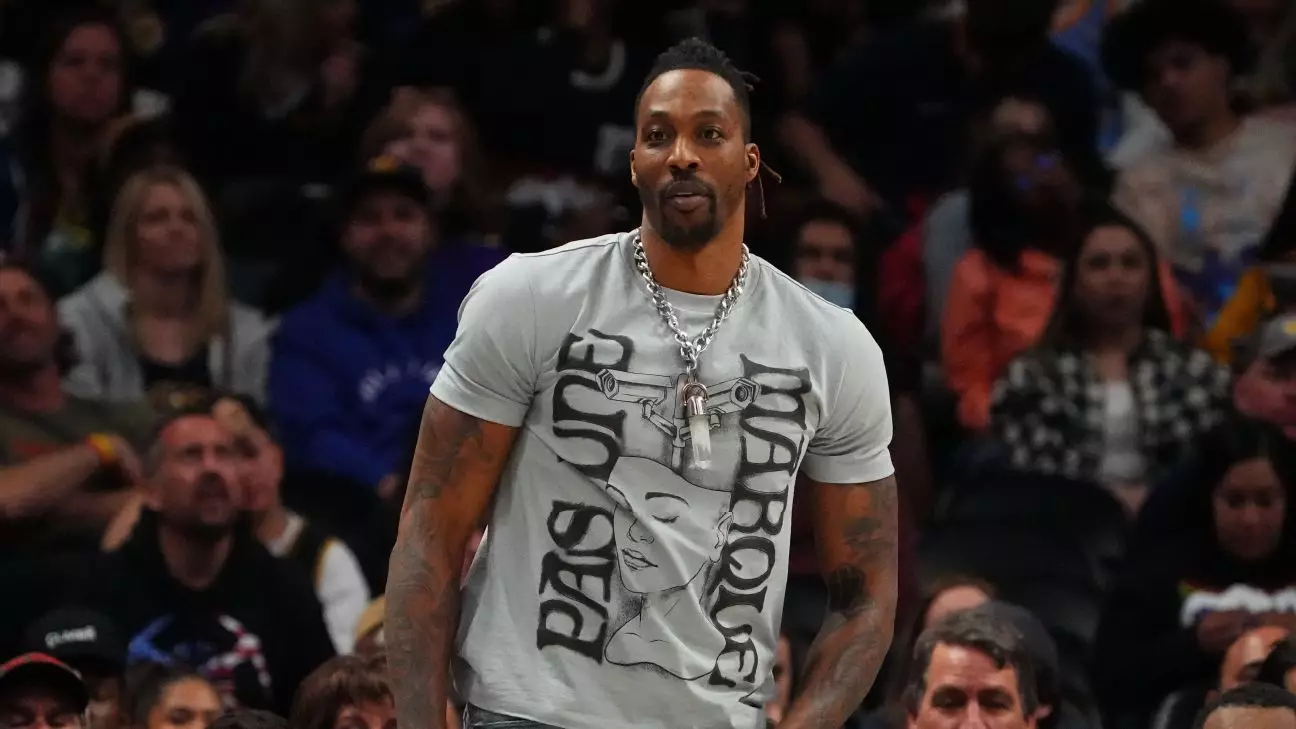In a stark reminder of the vulnerability of athletes to financial fraud, Georgia businessman Calvin Darden Jr. stands convicted by a federal jury of swindling prominent NBA players, including Dwight Howard and Chandler Parsons, out of a staggering $8 million. This case, transcending mere financial loss, reveals a tangled web of deceit, betrayal, and the challenges professional athletes face in managing their wealth.
Darden’s conviction on five counts, including fraud, bank fraud, and conspiracy, underscores the treacherous landscape that surrounds high-profile athletes. The allegations revolve primarily around Darden’s role in two separate schemes that misappropriated funds from Howard and Parsons in 2021. The former All-Star Dwight Howard erroneously believed he was investing in the purchase of the WNBA’s Atlanta Dream, ultimately transferring a monumental $7 million to Darden. In a parallel instance, Parsons fell victim to a fraudulent investment that centered on the career of basketball prodigy James Wiseman, the former No. 2 NBA draft pick. This exploitation of trust speaks volumes to the dangerous intersection of fame and finance.
The trial unraveled a series of extravagant expenditures by Darden, purportedly funded by Howard’s money. Prosecutors disclosed that Darden allocated a substantial portion—$6.1 million—of the ill-gotten gains towards luxury items including a Lamborghini, a grand piano costing $110,000, and a collection of watches valued at $90,000. These shocking revelations illustrate how quickly excitement and wealth can spiral into misconduct when guidance is lacking. Howard’s testimony was pivotal, shining a light on Darden’s egregious misuse of trust and financial acumen, merging the worlds of professional sports and criminal behavior.
Compounding Darden’s sentence prospects, his background is tarnished by a previous conviction for a multimillion-dollar fraud scheme in 2016. Prosecutors have indicated intentions to seek a sentence ranging from 11 to 14 years for Darden, further complicating his legal woes. Meanwhile, his accomplice, former NBA agent Charles Briscoe, received a relatively lenient punishment of home detention, which raises questions about accountability within financial dealings involving athletes.
The case against Darden is emblematic of a broader issue affecting many athletes—predatory schemes that prey on their financial naivety. As the sports industry grows, so does the complexity of managing wealth, necessitating a strong foundation of financial literacy. With figures like Darden exploiting the misconception that financial success guarantees investment wisdom, there is an urgent need for increased education tailored for athletes.
As Calvin Darden Jr. awaits sentencing, his case serves as a chilling cautionary tale to athletes everywhere. The risks of financial fraud loom large, emphasizing the necessity for professional athletes to engage in informed financial decision-making and seek advice from trustworthy and qualified advisors. As this story unfolds, it becomes clear that without due diligence and education, the consequences of misplaced trust can result in more than mere financial loss; they can jeopardize careers and futures.

